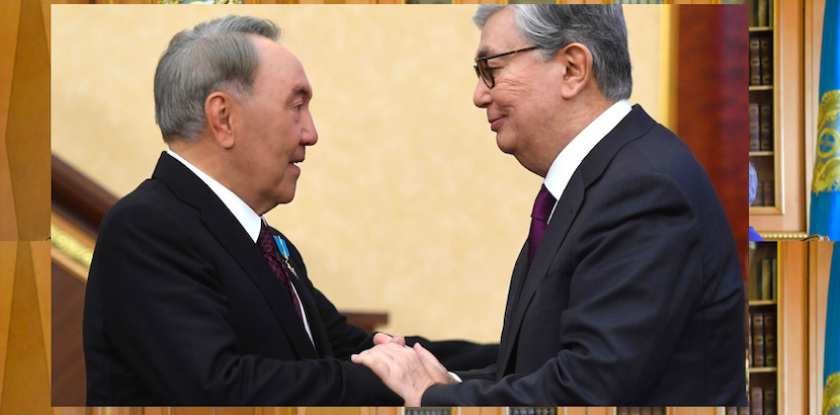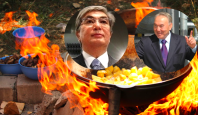Yet again, Akorda has demonstrated to Kazakhstan and the rest of the world that a duality of power is de-facto forming in the country. We are talking about Nursultan Nazarbayev’s decision to appoint Ardak Ashimbekuly the head of his own security and, simultaneously, the First Deputy Chief of Kazakhstan’s State Security Service.
If the Leader of the Nation and his immediate circle wanted to retain at least a hint of politesse, Nazarbayev could have appointed Ashimbekuly the head of his own security after which, President in Office Kasym-Zhomart Tokayev would have appointed him the First Deputy Chief of the SSC in addition to other duties.
However, this was done differently. And, quite possibly, on purpose. In order to remind all the citizens, especially those in civil service, who the true master of the country is.

If our suspicions are correct, this means that, within the state apparatus, the process of half-decay is underway. In other words, the elite clans confronted with the existence of the two power centers in the country have started gravitating towards one or the other.
When having the administrative and enforcement resource gives you one of the greatest advantages in the intra-elite competition, this is practically unavoidable. And it is very possible that Nursultan Nazarbayev, thanks to his well-developed political intuition and perhaps the information obtained from the secret service, realized that and decided to if not stop than at least delay this process.
However, we believe he will not be successful at that. The thing is that, in the Republic of Kazakhstan (just like it used to be in the Kazakh Soviet Socialist Republic), the people have gotten used to the fact that there can only be one “master” of the country. In the Soviet times, this role was usually performed by the Secretary of the Republican-Level CPSU Committee.
It is this circumstance that, to a large extent, assisted Nursultan Nazarbayev in remaining the “master” of Kazakhstan even after the collapse of the USSR and the liquidation of the CPSU. Now, having involuntarily handed his authorities over to Kasym-Zhomart Tokayev, Nazarbayev is constantly facing the possibility of his successor slipping out of control. Which can only be possible provided that a significant part of the state-apparatus, the siloviki and the ruling elite supports the second President.
One must admit that Nursultan Nazarbayev’s fears are not without foundation. Having survived several supreme power transits in the USSR and in the neighboring countries, he now knows that one better not to rely on the allies’ promises to stay loyal till the last breath. Perhaps it is for this reason that he chose such an uncharismatic persona as Kasym-Zhomart Tokayev as his successor.
However, Nursultan Nazarbayev has not taken into consideration the fact that, in Kazakhstan, power is intrinsically charismatic. How else can we explain the fact that the Kazakhs are extremely eager to make a career in civil service and in the quasi-governmental structures and that, when they do make the desired career, their grow in the eyes of the civil society?
As a result, Nursultan Nazarbayev has created a problem for himself. He has created a competitor in power who perhaps does not want to compete with his predecessor, but time and his surroundings will eventually force him to do just that.
Thus, if the Leader of the Nation lives for another couple of years and yet another transfer of supreme power to the next Nazarbayev’s successor does not happen during this period, the likelihood of the controversy between President #1 and President #2 will be rising. Simply because their immediate circles will have different views on who should rule the country and, therefore, distribute and consume the power dividends.
In our opinion, the dichotomy of the authoritarian political system and the super-presidential vertical poses the greatest risk for Akorda. Not today perhaps but in a year’s time for sure. For, it is with good reason that the Kazakhs say - “two mutton heads cannot stew in one cooking pot”. And history also teaches us that the times of polyarchy or anarchy in the authoritarian states tend to be short and continue only until the victor is determined. Or until the total collapse.





